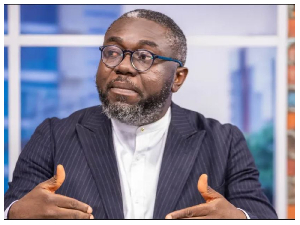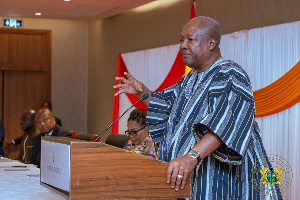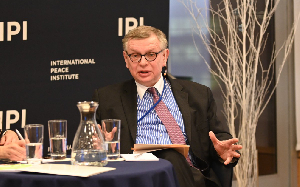In the dynamic realm of Ghana's electoral democracy, the delicate interplay between acquiring political power and combating corruption unveils a complex narrative. The title, "Bribing Our Way to Power to Fight Corruption," encapsulates the paradoxical challenge faced by political actors seeking to make a lasting impact on the nation's governance.
Ghana, known for its robust democratic traditions, has witnessed both triumphs and tribulations in its quest for transparent governance. While the electoral process strives to uphold democratic values, the pragmatic realities of political maneuvering often blur the lines between ethical campaigning and questionable tactics.
The juxtaposition of "bribing our way to power" and the aspiration to "fight corruption" raises pertinent questions about the methods employed by political contenders. In the pursuit of victory, candidates may grapple with ethical dilemmas, resorting to questionable practices that risk compromising the very principles they promise to champion.
Critics argue that the temptation to engage in unethical practices, such as bribery, stems from a perceived necessity to navigate the intricate web of Ghana's political landscape. The pursuit of power can lead some candidates to compromise their integrity, inadvertently perpetuating a cycle of corruption that they vow to dismantle once in office.
Conversely, proponents may argue that the use of strategic tactics, even if ethically gray, is an unfortunate but necessary means to an end. In a competitive political environment, candidates may believe that resorting to unconventional methods is the only way to secure the platform required to institute genuine anti-corruption measures.
Understanding this paradox calls for a nuanced examination of Ghana's political culture and the challenges faced by those navigating its electoral system. Striking a balance between electoral pragmatism and upholding the ideals of democracy is essential for harnessing a political environment where power is wielded responsibly, and corruption is genuinely addressed.
In conclusion, the juxtaposition presented in the title "Bribing Our Way to Power to Fight Corruption" sheds light on the deep-seated challenges facing Ghana's electoral democracy. While it underscores the ethical tightrope walked by political actors, it also serves as a call to action. As Ghana navigates its democratic growth, the discourse surrounding the means to power and the commitment to combat corruption should propel citizens, political parties, and candidates alike to engage in a collective dialogue.
By encouraging a culture of transparency, accountability, and ethical governance, Ghana can aspire to a future where the pursuit of political power aligns seamlessly with the genuine commitment to eradicating corruption, creating a more robust and resilient democratic environment for generations to come.
Opinions of Sunday, 7 January 2024
Columnist: Gilbert Addah















